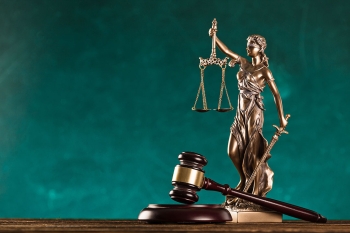
.png) Dr Suresh Mathew
Dr Suresh Mathew

A country with countless cultures and customs; religious rituals; tribal traditions. It is not only cumbersome but even impractical and quixotic to tie them together with a Uniform Civil Code (UCC).
It is even more crazy to announce a half-baked idea at a public meeting, that too by the head of the government. Since the issue assumes paramount importance, it should be disentangled from electoral and vote-bank politics, but the ruling regime at the Centre has no qualms to make it what it should not be.
Uniform Civil Code is a contentious issue from the very beginning. Hence the Constituent Assembly left it under the Directive Principles of State Policy in the Constitution. Since India follows religious pluralism, the founding fathers of the Constitution did not want to trample upon the personal laws of each religion in matters of marriage, divorce, inheritance, adoption, etc. There has been no unanimity among the Law Commissions too in this regard.
While the previous 21st Law Commission had said that UCC was neither necessary nor desirable at this stage in the country, the present 22nd Law Commission has sought public view on it. The Commission has, according to reports, received 46 lakh petitions and comments from the public, bringing out how close the issue is to the heart of the people. It is an issue that should be dealt with caution as it pertains to vital aspects of human life.
It would be beneficial to cite a few instances in this regard. In the North-East, there are matrilineal societies; it is part and parcel, soul and heart, of their culture. The youngest daughter is the custodian of properties, and male members are not entitled to inherit immovable assets like land. Changing those customs by introducing UCC would be akin to killing the tribal society and its culture.
In the same way, there are unique practices in other tribal societies in Chhattisgarh, Jharkhand and other places regarding marriage, divorce, remarriage etc. Introduction of UCC would put an axe to the root of those practices and traditions, which would essentially steal the soul of tribal societies. Hence tribals are bound to resist introduction of UCC tooth and nail.
Even in Hindu society, UCC could create chaos as it would put an end to the concept of Hindu Undivided Family (HUF) which helps many to derive income tax relief. Since HUF is considered a separate entity, it can derive additional tax reliefs apart from individual reliefs available while filing Income Tax Returns.
In other religions like Christianity and Islam too there are personal laws and practices which cannot be thrown out lock, stock and barrel. Personal laws of religions touch all citizens because they reach deep inside their ways of life for generations, and their personal spaces.
However, practices prevailing in any religion or society, if they severely impinge on gender-equality or human dignity, should be improved upon by rectifying the drawbacks in them. Separate laws could be passed or existing laws could be amended to set the wrong right. But it should be done after negotiations with all stake-holders; it would be disastrous to take blunt decisions in a ‘polarised political environment’. What is important is reconciling diversity rather than trying for compulsory uniformity.